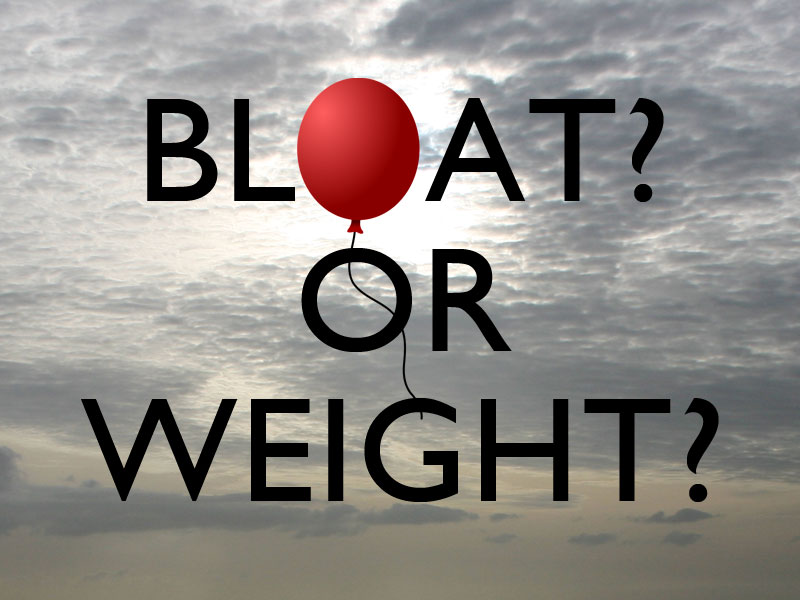Discovering the Distinction In Between Bloating and Fat: Essential Insights for Better Digestive Health
Recognizing the difference in between bloating and body fat is crucial for individuals looking for to boost their digestive health. While bloating is usually a short-term problem linked to nutritional behaviors, body fat stands for an extra secure component affected by long-lasting way of life selections.
Recognizing Bloating

Additionally, bloating can be intensified by problems such as irritable bowel disorder (IBS) or food intolerances, where the digestive system battles to process certain compounds effectively. Consuming as well quickly, eating carbonated beverages, or overindulging can also activate bloating by enhancing the quantity of gas and food within the tummy and intestinal tracts.
Tension and hormone changes can influence intestine motility and add to bloating as well. Identifying the triggers particular to a person's way of living and diet is crucial for managing this condition. Generally, comprehending the diverse reasons for bloating is important for establishing reliable approaches to reduce discomfort and enhance digestion wellness.
What Is Body Fat?
Composed mainly of adipocytes, or fat cells, body fat plays an essential role in preserving general health and wellness. It is classified into two primary types: subcutaneous fat, situated simply below the skin, and visceral fat, which borders interior body organs.
Along with energy storage space, body fat is integral to hormone policy, insulation, and security of vital body organs - bloating vs fat. It acts as a storage tank for fat-soluble vitamins, such as A, D, E, and K, promoting their absorption and metabolic usage. Furthermore, adipose cells is metabolically energetic, generating hormonal agents like leptin and adiponectin, which are associated with hunger policy and insulin sensitivity.

Body fat likewise plays a role in thermoregulation, assisting to preserve body temperature. While some quantity of body fat is vital for wellness, too much buildup can cause conditions such as weight problems, diabetes, and heart disease. Recognizing the complexities of body fat is crucial for promoting much better health and wellness and preventing illness, emphasizing the value of well balanced body structure.
Trick Differences Between Bloating and Fat
Usually misinterpreted, bloating and body fat are two distinct conditions that can influence an individual's appearance and convenience. Bloating refers to an uneasy swelling in the stomach area caused by extreme gas or liquid retention, leading to a short-lived boost in dimension. This problem can vary throughout the day, typically connected to nutritional choices or gastrointestinal problems, and is defined by experiences of fullness or pressure.
On the other hand, body fat is a steady part of body composition, representing saved power and playing an important duty in numerous physiological functions. Unlike bloating, body fat does not usually change quickly and is affected by long-term dietary routines, activity degrees, and metabolic factors. It gathers gradually, adding to total body form and health and wellness.
Additionally, while bloating can trigger discomfort and may be reduced through dietary changes or way of living modifications, body fat reduction normally calls for a more long term commitment to see diet and exercise - fat and bloating. Recognizing these distinctions is vital for comprehending one's body and handling wellness successfully, as each condition demands distinctive techniques for improvement and alleviation
Reasons of Bloating
Bloating can arise from a range of underlying variables, each adding to the unpleasant experience of fullness and stomach swelling. One main cause is the consumption of air, which can occur while consuming or drinking as well swiftly. This too much air can accumulate in the digestive system tract, leading to pain.
Additionally, specific foods are infamous for causing bloating, especially those high in fiber, such as beans, lentils, and cruciferous vegetables. These foods can cause enhanced gas production during food digestion. Lactose intolerance is another considerable factor, as individuals doing not have the enzyme lactase might experience bloating after taking in dairy products.
In addition, sweetening agents, particularly sugar alcohols, can interrupt intestine function and trigger bloating. Stomach disorders, such as cranky digestive tract disorder (IBS) and celiac illness, can additionally manifest as bloating as a result of damaged digestion or check swelling.
Hormone fluctuations, specifically during menstruation, can result in short-lived bloating also. Stress and anxiety and stress and discover this anxiety can aggravate digestion concerns, additionally contributing to the sensation of bloating. Recognizing these causes is critical in attending to and alleviating this common pain.
Tips for Taking Care Of Digestive Health And Wellness
Resolving the variables that contribute to bloating is just the start of promoting far better digestive wellness. Foods such as fruits, veggies, and whole grains promote routine digestive tract activities and reduce the likelihood of constipation, a common trigger for bloating.
Hydration plays a crucial role too; appropriate water consumption aids the gastrointestinal system feature ideally and can reduce bloating. bloating and fat. Furthermore, exercising mindful eating-- such as eating food thoroughly and eating gradually-- can assist in digestion and reduce air ingesting, which usually intensifies bloating

Last but not least, incorporating probiotics right into your regimen, whether with supplements or fermented foods, can promote a healthy gut microbiome, better supporting gastrointestinal procedures. By welcoming these approaches, people can achieve an extra balanced and comfy digestive experience.

Final Thought
Finally, distinguishing in between bloating and body fat is crucial for maximizing digestive system wellness and overall well-being. Bloating, frequently a short-lived condition connected to nutritional options, contrasts with body fat, which shows long-lasting way of living habits. Identifying the reasons and indications of each can direct individuals in making informed dietary modifications and lifestyle changes. Ultimately, this understanding cultivates better management of digestive wellness and supports efforts toward lasting fat decrease.
Comments on “Don’t get confused anymore! fat vs bloating.”